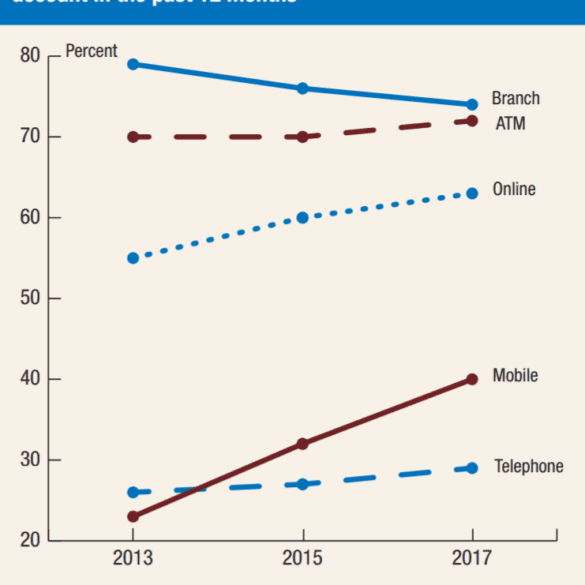Let's make a collective decision to see the glass as half-full. While physical banking (7,000 US branches gone during 2012-2017) and employment in the sector (425,000 jobs lost since 2013) has been contracting, digital commerce, banking, and investment management have been growing. Even DFA is finally giving in and lowering fees on their $600 billion institutional mutual fund family. Of course, Fintech has been a slow and gradual transformation, not a rapid disruption. We can make a choice to bemoan the loss of the past, or a choice to express an excitement for the future and participate in its making. Which side are you on?
The World Economic Forum in collaboration with The European Sting puts forward the interesting idea that the impact of fintech...
Bloomberg reports on the possibility of ride-sharing companies getting into financial services; Grab is a leading ride-hailing company in Southeast Asia; app users can now start sending credits which are used to pay for rides to other users; by the end of 2017 credits will be able to be used at 1,000 restaurants and retailers, turning Grab into much more of an e-payment platform than just a taxi service; in Indonesia, the 200,000 drivers of Go-Jek can use e-wallets to store their earnings and also spend funds on a variety of services; article also shares innovation in Kenya with M-Pesa as well as China's Alibaba and WeChat. Source
Despite the popularity of M-Pesa and other similar services less than half of the population in sub-Saharan Africa has bank...
M-Pesa is now in 11 countries, has more than 30 million users and helped to lift thousands of people out of poverty; Business Insider took a trip to Kenya to get a look at how the app works and the effect it has had on the region; 80 percent of mobile banking in Kenya is done through M-Pesa and people use the service for groceries, paying off debts with friends and more. Source.


